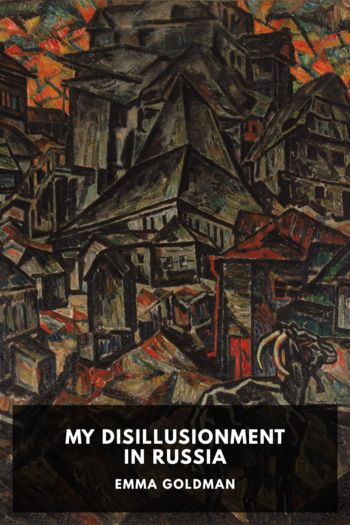Monkey Boy Francisco Goldman (best ereader for students .txt) 📖

- Author: Francisco Goldman
Book online «Monkey Boy Francisco Goldman (best ereader for students .txt) 📖». Author Francisco Goldman
My mother, like so many other immigrants, has lived her life between two cultures and countries; after enough years had passed, she may have felt that she didn’t quite fit in either, never the United States, no longer Guatemala. One of the strangest things I’ve done with my own life has been to follow her path, in a sense willfully divesting in order to pour myself into that mold of divided, not quite belonging anywhere.
Mamita’s last trip to Guatemala was seven years ago. I was there. I took her to San Sebastián, her girlhood parish church, where she’d been baptized and had planned to get married, where my sister and I were baptized, too, and where, on a Sunday night one year before our visit, the human rights bishop had been bludgeoned to death in the parish house garage. The still traumatized sacristan, Toño, and I gave my mother a little tour: Monseñor was found right here, Señora, in a pool of blood. They’d folded his hands over his chest like this and crossed his feet at the ankles. To which I added: Thirty-six fractures in his skull, Ma. He was hit so hard with, probably, a metal pipe, his jawbone was driven back into his trachea. Ay no, Frankie, que feo, murmured my mom.
Lexi’s last visit was one summer when she was a year or two out of high school. Over the years I’ve heard conflicting, partial versions of what happened during those months, mostly from my mother and Feli, some from our relatives, not much directly from Lexi. She did tell me how she used to like to walk to the Hotel Camino Real before nightfall, the cypresses lining the Avenida Reforma thick with chattering grackles at that hour, to buy the New York Times that always arrived at the hotel in the afternoon a day late. She’d sit alone with a glass of wine at the bar reading it, just like I’d regularly done when I’d lived in Tío Memo’s house a few years before, though I drank beer. Tía Meche was scandalized. She accused my sister of going to the hotel to try to pick up men. There were other such incidents, the inevitable results of a lonely gringa college student abroad asserting her own individual rights and clashing with my aunt’s rigidly old-fashioned sense of how a single young woman was supposed to behave. My aunt’s insinuations grew uglier; horrible words were exchanged. One night, after Tía Meche had sent our alcoholic cousin Fernando to fetch Lexi from a disco, where he found her sitting at a table conversing and having drinks with a Lebanese cardamom importer, he called Lexi a puta as soon as they were back home, in front of our aunt. My mother has never forgiven Meche for how my sister was treated that summer, it’s the one thing she’s never hidden her anger over. That’s probably part of the reason, at least, that Lexi seems to regard herself as only American and also, despite her closeness to my mother and her poisoned feelings toward my father, as a Jew, never blurring her identifications in the way I’ve done since childhood. I dash down to Guate every chance I get, never just to visit our family, but I do always at least stop in to the toy store downtown, family headquarters, to say hello.
Anger flashes in my mother’s eyes. What? I respond.
Memo, she says, why didn’t you come to my wedding?
Memo didn’t come to your wedding?
She gapes at me and after a moment she says, No, he didn’t, Frankie.
But he did, I think. I’ve seen photographs of the wedding and Mexico, and Memo was there. Or am I wrong, and I’m confusing those with photos of my mother at Memo and Meche’s wedding, that’s probably it. Jesus, both our memories suck.
Mamita closes her eyes again like she’s meditating.
So often when my mother asks me to try to get along better with my sister, she weighs her pleas by reminding me what a good brother Memo has always been to her. Yet here Mamita is now, convinced that Memo didn’t come to her wedding. If he didn’t, why didn’t he?
She’s awake, looking at me crossly. She says, Frankie, péinate.
Si, Mami, I say, and lift crooked fingers to my head and swipe at some curls. Not a visit passes without my mother scolding me to comb my hair.
Her eyes close. Soon I hear her soft snore.
I know Lexi has had some hard times in the past, but it does seem like she’s doing much better now, an important person in New Bedford, according to my mother, married to a policeman, a woman who can go to a Maya shaman to ask him to cast a spell to help her brother find a wife—
Lourdes López, at the moment, being the only possible known candidate for that. In Dunkin’ Donuts and during that morning after we made love for the first time, she told me stories from her childhood, like the one about the old man who used to arrive in her village to sell ice cream on weekends and holidays and how because her mother would let him stow his wooden cart behind their small house while he went off to get drunk and sleep somewhere, Lulú was allowed to scrape ice-cream scraps off the bottom of the cart with a spoon; happy memories, the only times in her childhood she tasted ice cream. But when she was an adolescent, she and her mother moved from Veracruz to gritty, polluted Ecatepec, in Mexico State, where Lulú’s uncle had a job working for the railroad. There, she said,





Comments (0)